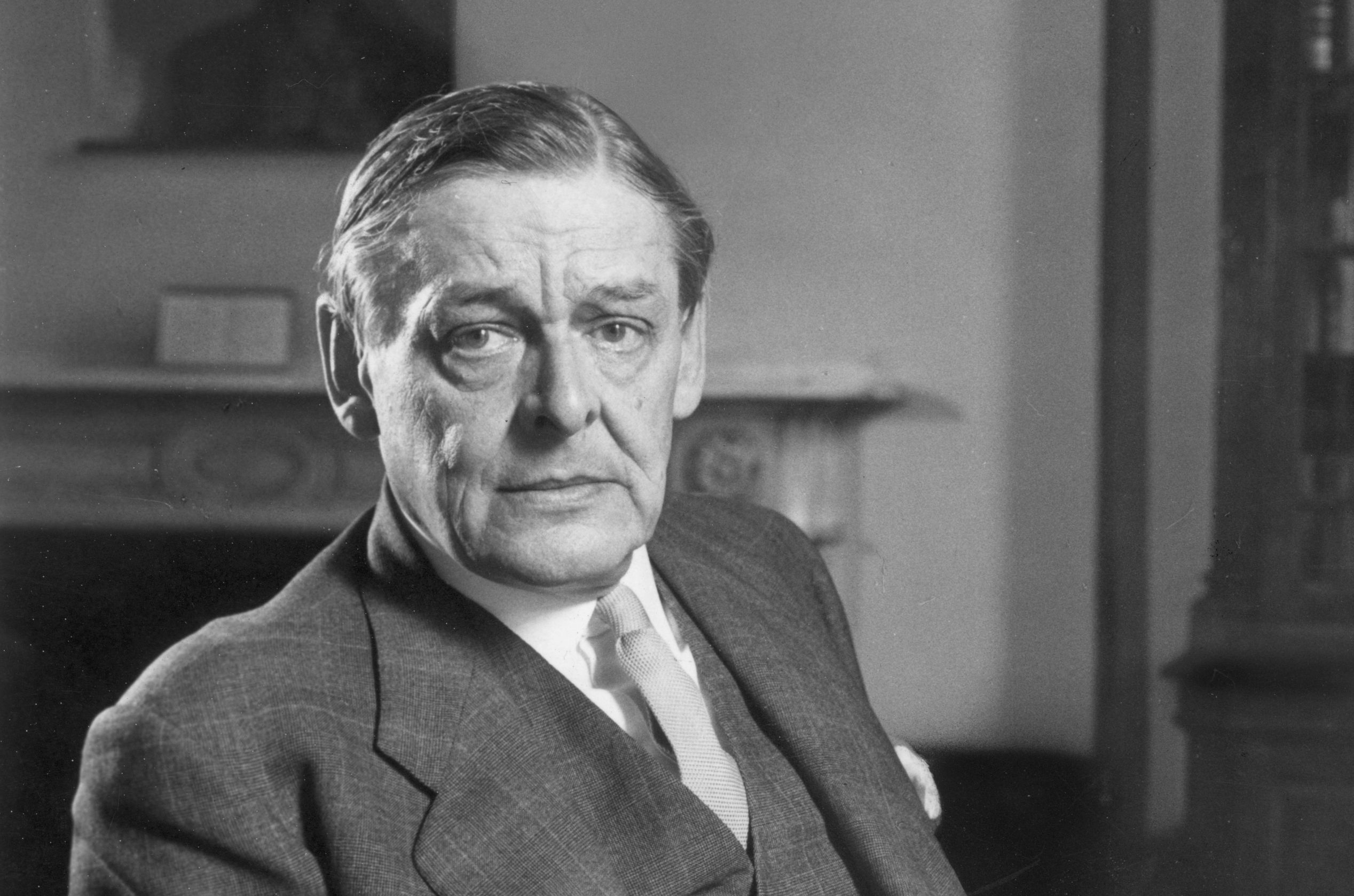
T. S. Eliot is one of the greatest-known poets and playwrights in our country’s history. Born into a prominent Boston Brahmin family, Eliot was infatuated with literature from his early childhood, writing his first serious poems at the age of 14. Later, his experiments in diction, style, and versification propelled Eliot into becoming a leader of the Modernist movement in poetry. In 1921, he wrote the poem "The Waste Land" while recovering from exhaustion. The dense, allusion-heavy poem went on to become one of the most influential works of the 20th century. This was followed by the creation of more significant literary achievements, including "The Hollow Men" (1925), "Ash Wednesday" (1930), and "Four Quartets" (1943). Eliot was also a playwright and critic, publishing a series of literary essays that shattered old orthodoxies and erected new ones. Internationally lauded during his lifetime, Eliot was awarded the Nobel prize, the Dante Gold Medal, the Goethe prize, the U.S. Medal of Freedom, and the British Order of Merit.
Although precocious, it was not until Eliot was 17 that his literary talents began to bloom at Harvard University. The budding poet began courses at Harvard in 1906, graduating three years later with a Bachelor of Arts degree in an elective program similar to comparative literature. As an undergraduate, Eliot served on the board of The Harvard Advocate, the College’s literary magazine, which also published some of his early poems. Following graduation, Eliot stayed at the campus to work on graduate studies, earning his Master of Arts degree in English literature in one year. In 1910, while still a college student, he also wrote “The Love Song of J. Alfred Prufrock," which would turn out to be a landmark in the history of literature. Later, from 1911 until 1914, Eliot studied Indian philosophy and Sanskrit, although he failed to finish the requirements for a doctorate at Harvard.
Throughout his life, Eliot was a generous supporter of his alma mater, returning on numerous occasions. In 1926, he was invited to give the Clark Lectures at Cambridge; and in 1932, by this time a world-renowned poet and critic, Eliot was invited to Harvard as the Charles Eliot Norton Professor of Poetry. His Harvard lectures, a survey of high points in English criticism from the Renaissance to the 1920s, were published in 1933 as "The Use of Poetry and the Use of Criticism." Later, in 2010, Harvard celebrated the 100th anniversary of Eliot's graduation by hosting an exhibition titled, "Class Notes: The Centenary of T.S. Eliot at Harvard 1910-2010." Leslie Morris, curator of modern books & manuscripts at Harvard's Houghton library, said, "Eliot as the great Harvard poet is someone who we’ve always collected in great depth." Additionally, Harvard has made an extensive collection of Eliot's personal letters, manuscripts, photos, and recordings. This includes a priceless early copy of his famous poem “The Love Song of J. Alfred Prufrock," which continues to inspire future Harvard writers and readers alike.
